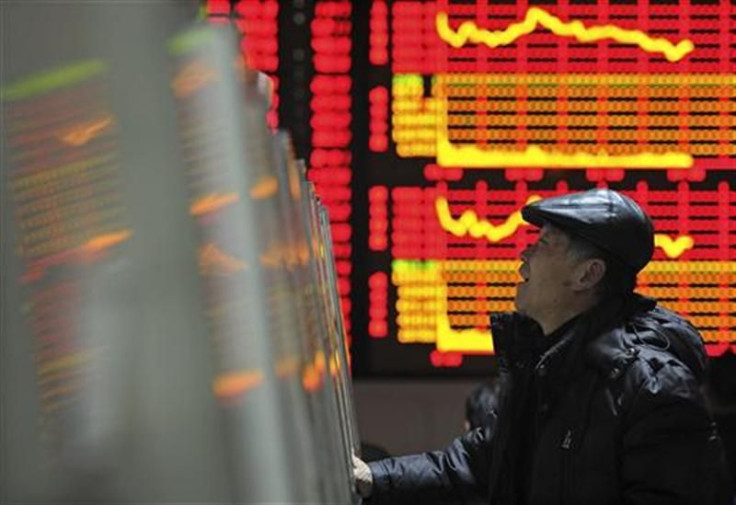Asian Markets Listless As Japan Stimulus Hopes Fade

Asian markets were listless Monday as investor confidence was weighed down amid the speculation that policy makers in Japan might disappoint by not announcing substantial stimulus measures in the meeting this week.
The Chinese Shanghai Composite rose 0.39 percent or 8.95 points to 2326.02. Hong Kong's Hang Seng marginally gained 0.08 percent or 17.61 points to 23622.26. Among the major gainers were Sino Land Co Ltd (83: HK) (2.91 percent) and Sands China Ltd (1928: HK) (2.46 percent).
Japan's Nikkei Stock Average was down 0.85 percent or 92.71 points to 10820.59. Among the major losers were Sharp Corp (6753: JP) (3.20 percent), FANUC Corp (6954: JP) (3.01 percent) and Olympus Corp (7733: JP) (2.42 percent).
South Korea’s Kospi Composite Index marginally rose 0.08 percent or 1.54 points to 1989.39. The shares of Samsung Electronics Co Ltd (005930: KS) fell 1.08 percent and those of LG Electronics Inc (066570: KS) were up 2.01 percent.
India's BSE Sensex gained 0.32 percent or 64.31 points to 20103.35. Among the major gainers were Reliance Industries Ltd (RIL: IN) (4.14 percent), Wipro Ltd (WPRO: IN) (1.22 percent) and Cairn India Ltd (CAIR: IN) (1.13 percent).
“We expect the two-day meeting of the Bank of Japan’s Policy Board to conclude next Tuesday with a joint statement on policy cooperation between the Bank and the government, the unveiling of a new inflation target of 2 percent, and another increase of at least 10 yen trillion ($118 billion) in the ceiling on the asset purchase program. Anything less and the markets would now be sorely disappointed, but even these announcements may be less substantial than they first appear,” Capital Economics said in a note.
However, investors worry that the commitment to achieve the underlying inflation of 2 percent may well be seen as over ambitious and risk undermining the central bank’s credibility. Market participants sense that substantial policy measures will be required to support a higher inflation target. This means that the monetary policy will have to be looser than it would otherwise be, which can be a difficult proposition considering that the APP (Asset Purchase Program) comprises 65 trillion yen in outright asset purchases and 36 trillion yen in lending, with the asset purchases due to be completed by the end of 2013.
Meanwhile, there has been the weakening of the yen with no imminent reversal expected in the recent increase in global risk appetite. Macroeconomic problems of the euro one continue to be unresolved and the U.S. is faced with the continuing debate over the debt ceiling.
© Copyright IBTimes 2024. All rights reserved.





















